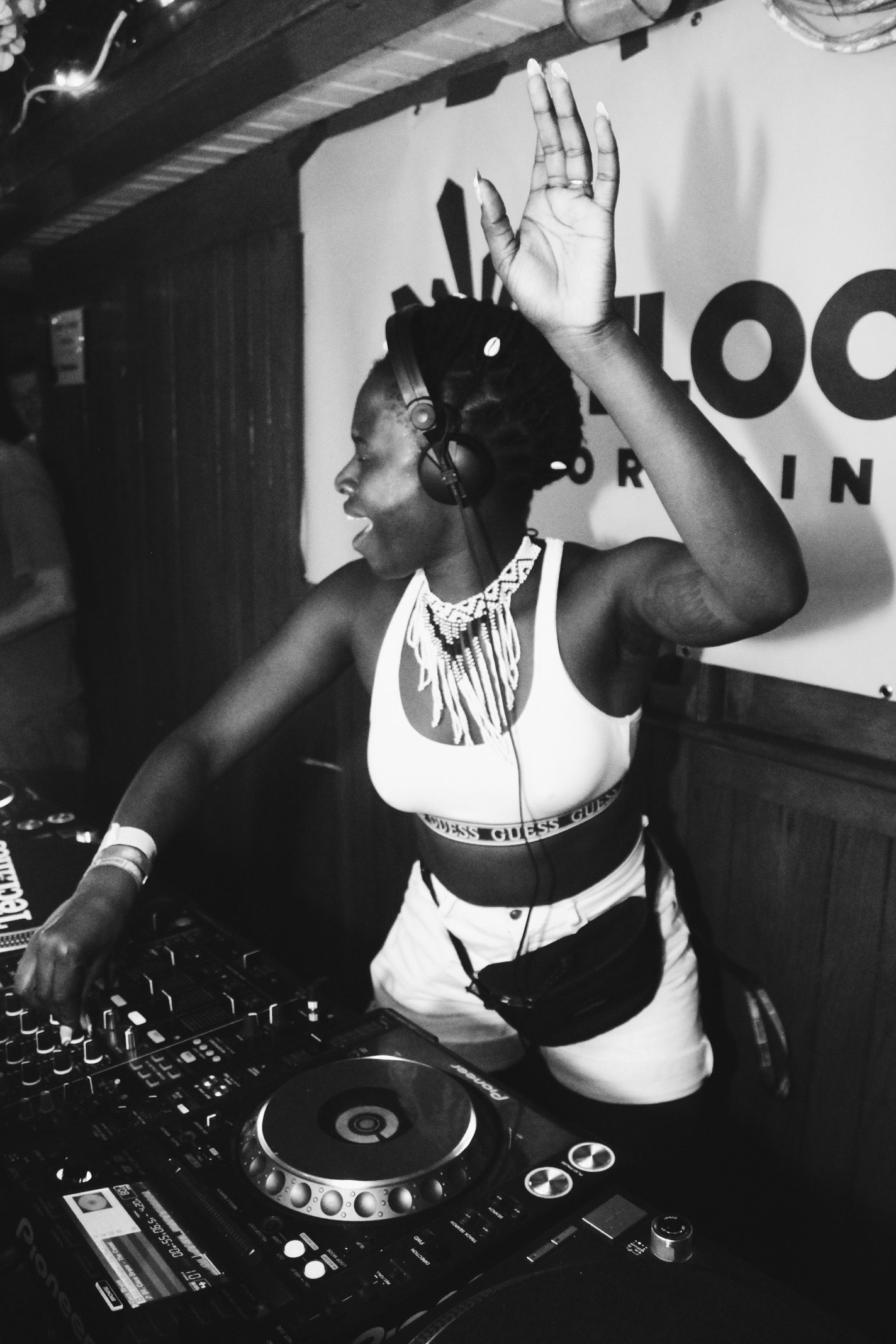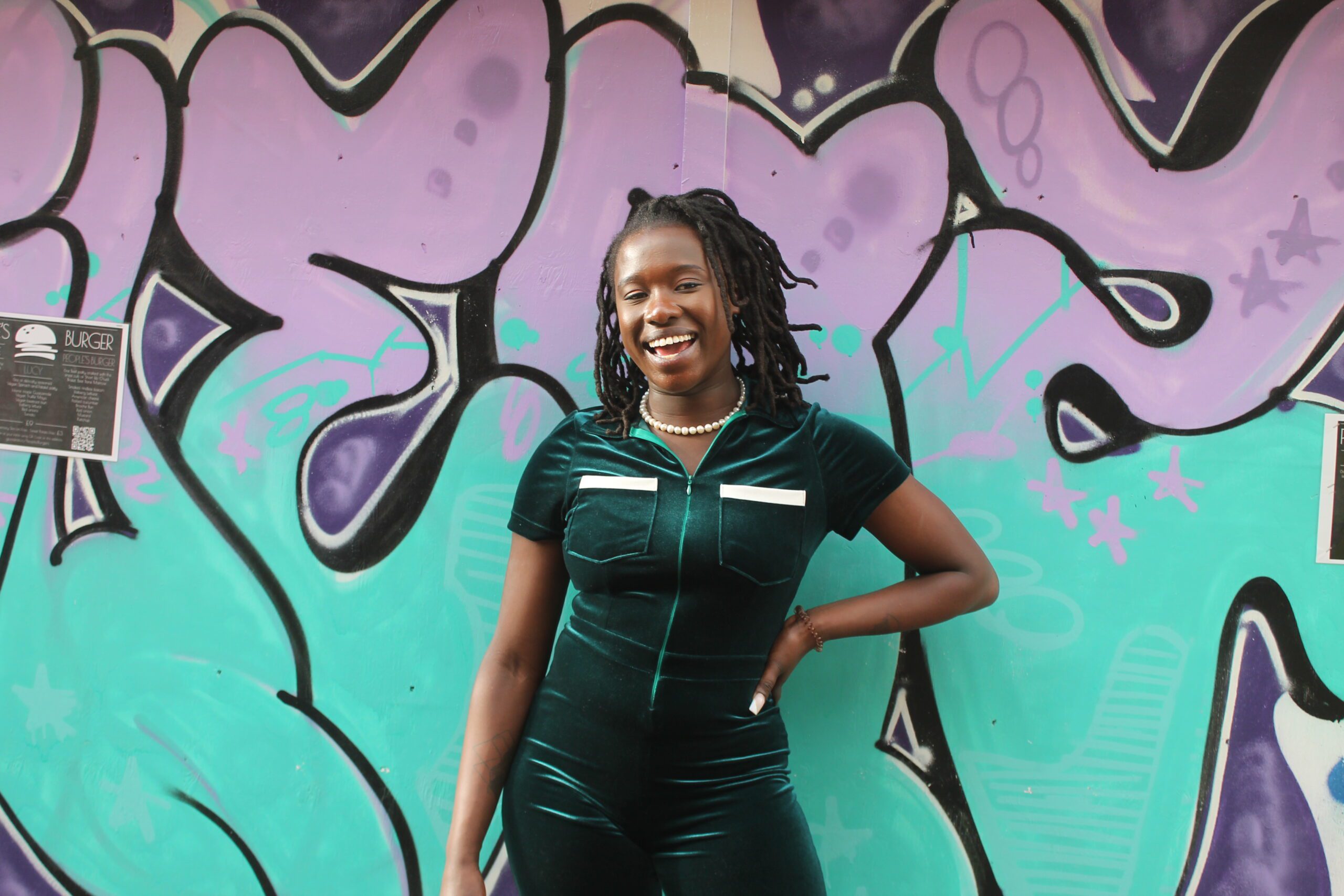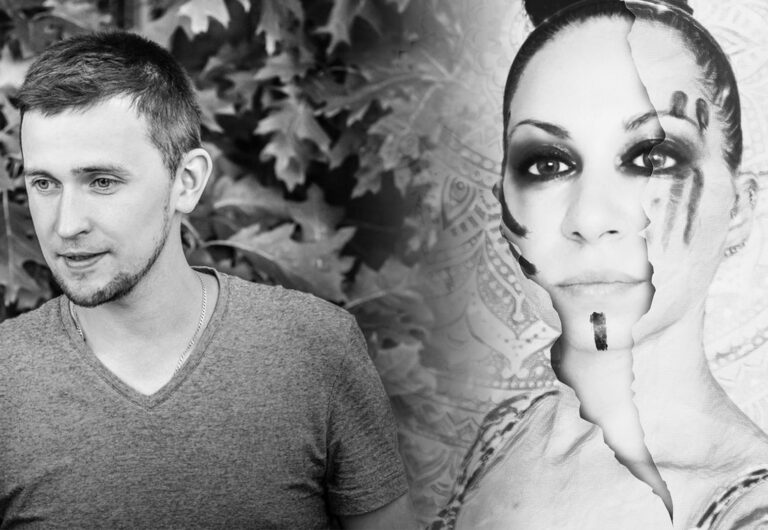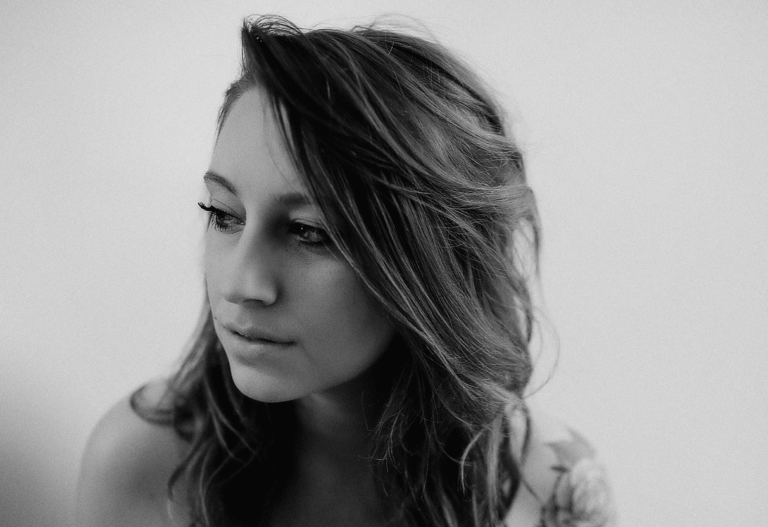Credit: Wavey Fotos
Every passion has to start somewhere. For some it might be the moment they first heard their favourite track, and for others it’s the sound of their own voice. When Sheba Q was a youngster, it was a simple piano and a harmonising choir that captured an immediate sense of belonging in music. From those early moments, a deeper connection to creating musical art was formed, along with a desire to nurture a culture of unity in music.
Now a maths teacher by day and a jungle artist by night (evenings and weekends to be exact), Sheba Q is on a mission to pioneer what it means to be a creative and not be placed in a box or labeled with one description. To her, jungle is just one genre of plenty that can be used for self-expression and creating artforms. Collaborating with the likes of No Nation and Coco Bryce, Sheba Q is blurring genre boundaries, from hip hop to grime and jungle, combining soulful music to take listeners on a journey.
With her voice at the foundation of all of her creativity, Sheba Q is ready to create more and work with other artists. We caught up with her to find out more about her journey so far, and what inspires her most to create music…
Tell us a bit about your earliest memories and experience of music…
I’ve always had a weird affiliation with the piano. I remember being as young as maybe nine years old and whenever we were going to someone’s house or a new church, I’d always ask if there was a piano there – it was a weird obsession of mine. One time, me and my Mum were passing by a British Heart Foundation and I saw a piano in the window and I was like, ‘Mum, you gotta buy me this!’ I had never been one to push for my mum to buy me stuff.
In secondary school I was in choir, and I have to shout out Mrs Waite. She was my music teacher and still is the music teacher at the school I went to. We would do things like go on trips and sing in random places like a church in Germany or a hall in Disneyland Paris, and so from there I used to just really enjoy singing with other people. I think that’s where I built up my comfort in being able to perform and sing. As I turned 18 or so, I started attending more open mic events.
My first journey into music and drum and bass jungle was acoustic singing and open mic nights with jazz. That’s why even now my mixes are quite eclectic because I really enjoy expressing myself in various ways when it comes to music. I met BK Balance, who was mixing a lot at the time, and I was like ‘this drum and bass music is too fast’ and I preferred garage. Slowly but surely I would start mixing the tunes in my head and I thought I needed to try it for myself. That’s how I moved into DJing.
It sounds like you’ve always had a natural instinct and gravitation towards music and it all comes back to your singing – do you feel like you found your musical self through your voice?
I would definitely say that. I have early memories of getting an MP3 and putting all my favourite songs on it and then singing along, or being obsessed with certain music videos and playing them at home on dial up internet and singing along to them. Definitely I would say that my voice and singing has been a best friend to me in life and it’s almost like I owe a lot to music and the fact that I can express myself in a lot of different ways.
Is there something in common between all your favourite genres (jungle, hip-hop, garage) that you think symbolises what you love about music?
That question reminds me of a conversation that me and No Nation had once where we were talking about how similar our music tastes are. It’s not even necessarily music taste, it’s the idea that soul music as we know it is broader than soul music as we know it. Music that makes you feel something or music that is trying to take you from A to B. I feel like that is the sort of unifying theme throughout all of the music that I enjoy.
You mention performing back in the day in choir and now it’s on a stage behind the decks – did you always feel the instinct within that you wanted to be a performer?
I think so. Thinking back to school projects and the times where I had to do public speaking – for some people that’s their worst nightmare, but for me I always really enjoyed that. Even back in the day being a bit of a class clown and having that effect on people, making people laugh, using my voice. People will say that I must have a bit of a center of attention complex to become a teacher. I think even more recently when I’ve seen how much I enjoy being a DJ, I think it’s time that I own this aspect of my character.
Growing up as a woman is realising that having a voice is powerful and it doesn’t make us bossy or aggressive…
Yeah , it’s not a hindrance, it’s a passion. Women are very rarely afforded the opportunity of being seen as passionate about something or really intelligent, it’s often seen as aggressive or bossy. I think going through a journey of being able to say that I enjoy performing and i’m good at it, that takes a lot.
You’ve already mentioned an inspiring woman in your life, Mrs Waite, did she play a role in you wanting to become a teacher yourself?
I think most definitely and I had the privilege of having a couple of really good teachers that were inspiring. Definitely from a personable point of view, there can be a big barrier between the ways that teachers humanise the youth and vice versa, so I really admired how much she saw the potential in each and every person and brought that out in a really personable way. That’s definitely something that I try to directly emulate in my style of teaching as well.
How has it been forming a balance between teaching and trying to pour so much energy into being creative?
It’s still a balance that I’m trying to figure out. As soon as me and BK Balance bought a place, I moved down to teaching four days a week and that was one of the best blessings I could have given to myself. Aside from that, I also really value the idea of rest, so that means that I have that day. It also meant putting in the hours over the years to make sure I could do that. Otherwise, I try to use my holidays wisely and the busier I’ve become, it’s really highlighted to me the importance of intentional rest.
I really try to make sure that I’ve got a long term goal in mind and that I don’t just take any gig so that I’m being really conscious of not making any one of those feel any more stressful than they need to. But it is really difficult and in an ideal world if I could have the access and privilege to not have to work that hard, then I would, but it’s still a journey that I’m trying to figure out.
I would be lying if I said I didn’t find myself really tired, but I’m really grateful that the school is quite supportive and the team I work with are actually interested in what I do rather than making it feel like it’s contending with working. I’m always trying to pioneer this idea that you don’t have to go through life just doing one thing and that means i’m still on this journey of figuring it out and finding what makes me happy, and that struggle is worth it instead of falling into the norm of working one job just because that’s what everyone else does.

Credit: Danny Niceone
Is there any way that you bring your music into your day job?
Before COVID I had arranged with one of the drama teachers for a school trip to Roundhouse. I wanted to show some of the students the space they had available if they wanted to sign up and learn how to DJ. Roundhouse has a lot of good, affordable music facilities for people between the ages of 11 and 25. All teachers have to do a club of some kind at least two out of three terms in the year so I’ve done things like an acapella group, bars and songwriting. Last Christmas the UCL Academy had a concert and I had sampled some of the music being performed and I used that sample in the beginning and end of the mix I did for BBC Asian Network for New Years Day. there’s little things like that, that come naturally but work well.
You’ve played at a lot of different events like Rupture, Tate Modern, Black Artist Database – do you feel like you’ve come a long way and that you’re making progress on this journey to finding your balance?
Definitely. I often think when I’m performing at a certain gig and I’m seeing all the other names on the lineup, I feel really privileged and proud of myself that I can be amongst greats like that. It’s a really good feeling to be recognised for something that I’m really passionate about, and a chance to share that passion and get better at performing and I’m even wanting to start incorporating my singing in my performances more as well. Part of that recognition was my involvement with House of Hi-Fi as a resident and now as a managed artist since 2018.
I definitely see the progress and I see that people are liking what I’m doing, but I definitely want the access and ability to take my ideas even further. You mention that my voice is my first route into music, and I definitely want to build on that and incorporate that more.
I want to hear a bit more about Jam In The Attic – can you tell us more about that and what led to the launch?
Jam In The Attic started in July 2018 with our first event. My idea was that I didn’t understand why jungle drum and bass was perceived as just white male music. Well, I did understand it because I’ve watched the documentaries, but I wanted to create a safe space for people to hear this music on display, almost like putting on a gallery exhibition. The night was sort of split up into playing grime, hip-hop and jungle. And because i’m really fascinated with how hip hop and jungle are so similar – they’re the same BPM and have a similar sort of story as to how they came about and how samples were used – I really wanted to put on an event to show that if you can MC to hip hop, you can MC to jungle; it’s the same thing!
What better way to get people involved with music than putting on an open mic so that people could start off sharing – some people did comedy sketches, some people sang, some people performed live instruments, and then it went into that cypher. It was called Jam In The Attic because it was upstairs at the Ritzy in Brixton, MC Chickaboo even graced the stage with Y-Zer. I really saw it as an opportunity to share that music and share that history in an interesting way. I enjoyed juxtaposing those three genres to show how similar they actually are. I think we did three or four events and people enjoyed it – it was a really nice energy, one where people were going there to discover something, which I think is the essence of jungle as well.
I think a good marker of your progress was your nomination for Best Breakthrough Artist 2021 in DJ Mag’s Best of British Awards. Do you think an important part of being a creative is having some of those tangible moments of recognition?
As humans, we like to feel seen and heard and feel like we’re not just talking to a brick wall. In that regard, it was a milestone for me I would say. It kind of solidified all those little comments from people who told me what I was doing was great and to carry on because what I’m doing is unique, so I really appreciated it in that regard. I think it is important to be recognised, it would be weird to say otherwise, but you should also only put so much importance on these things and just use it as a motivator to see how you can keep bettering yourself going forward. I felt grateful for myself but also how it could elevate all the people around me who help me.
If we talk about you as a producer and singer, is there a vision you have of who you want to be as an artist?
What’s been really exciting and interesting is that I’ve been going through a lot of challenges in life, as life usually throws your way, and I’ve been improving my ability to express that through music, especially through writing and producing with No Nation. I’m feeling more proud of my lyrics, which is something I’ve been working on for a long time. I didn’t want to just be another person talking about love and I didnt want to be singing cheesy things either, I wanted to be poetic. I’m imagining myself being somewhat of a cinematic artist. I’m very into the whole visuals and taking people on a journey and trying to express whatever poetry is inside. My hopes in the future from an artist point of view is definitely to have more fuller bodies of work and being open to what that might mean.
So far you’ve worked a lot with other artists like Saxxxon King and No Nation, do you find that the collaborative process is a big driver for you in terms of self-expression?
Definitely, I would say so. Our song Burn Slow was the first collaborative piece I worked on and recorded professionally, he helped me realise. A big part of music for me is that I really enjoy that collaborative process. I’ve beaten myself up a little bit when I’m aware I can’t yet sit in front of a computer and produce music by myself. Although there have been times when I’ve thought that that is what I want for myself, I’m also realising that the way I enjoy music most is when I’m creating with other people. That has a big profound effect on almost sharpening my own skills because when you work with other people it highlights what you bring to the table and brings fresh ideas.

What can we look forward to from Sheba Q this year?
I’ve been working with No Nation quite extensively and I’m really excited to see how people receive the project he has coming out with Lobster Theremin. I’m playing B2B with Coco Bryce in June, which I feel is going to be a really good opportunity considering that is someone whose musical articulation I really admire. As a DJ he’s crisp and this is a chance to go head to head, but also to be in that proximity to greatness, to enjoy it and bounce off each other. There’s a few things coming out on the label Diffrnt as well this year.
If people have heard me and think they have a backing track or want to send me ideas, I do listen to the music I get sent and I enjoy that process of listening to a track and thinking of ideas, so I’m open to that. I’ll be contacting more producers and asking to develop on those ideas.
Join Sheba Q b2b Coco Bryce at No Matter on June 11
Follow Sheba Q: Spotify / Soundcloud / Instagram


